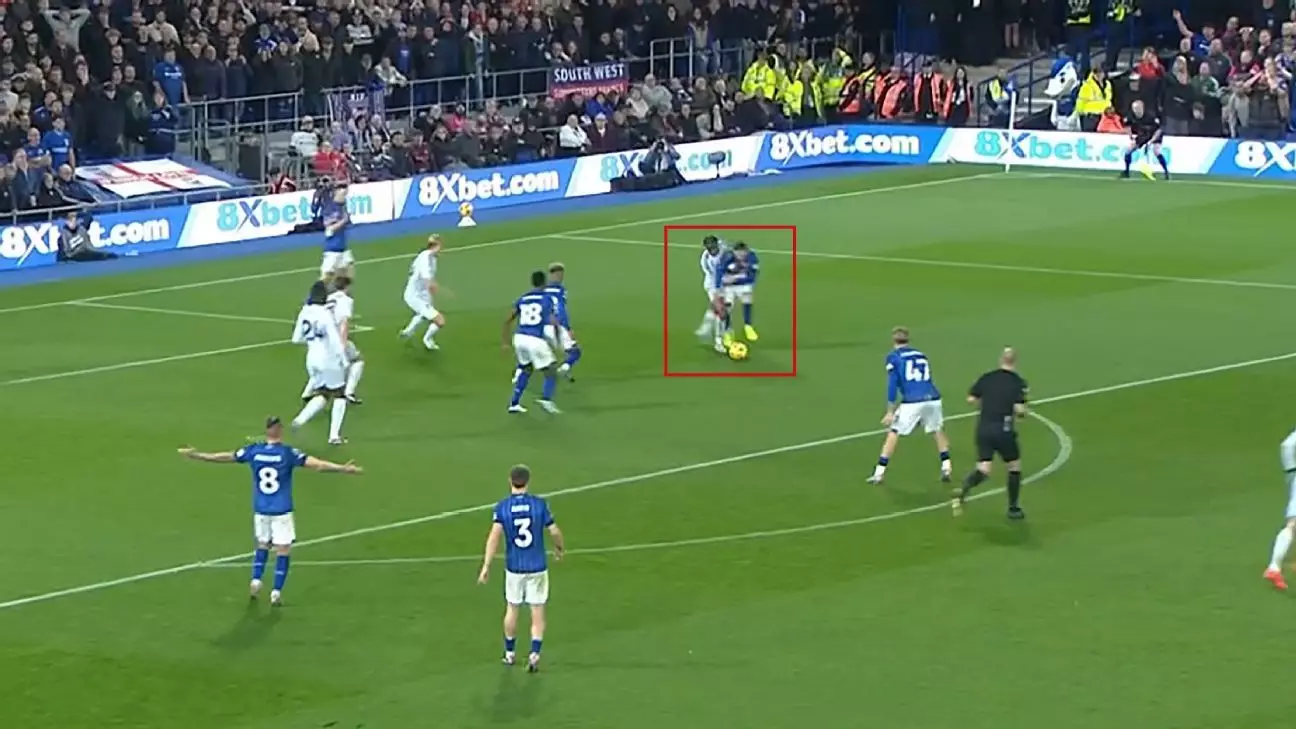The introduction of Video Assistant Referee (VAR) technology in football was heralded as a transformative step toward enhancing the accuracy of officiating. However, Ipswich Town chairman, Mark Ashton, finds himself at the forefront of criticism against this system after his team experienced what he termed an “injustice” during their recent match against Leicester City. Despite leading 1-0 into the latter stages of the game, Ipswich’s hopes for a penalty – following a foul on player Conor Chaplin by Leicester’s Fatawu Issahaku – went unheeded, raising serious concerns regarding VAR’s application.
The narrative surrounding this incident paints a vivid picture of frustration for smaller clubs within the Premier League. Ashton’s remarks echo broader sentiments that have long plagued the discourse surrounding VAR: inconsistency, confusion, and a perceived bias toward higher-status clubs. In a moment that could alter match outcomes, the lack of VAR intervention led not only to a missed penalty opportunity but ultimately resulted in Ipswich settling for a 1-1 draw – a scenario that leaves fans and staff grappling with unanswered questions.
Ashton’s pointed comments following the Leicester match underscore a growing dissatisfaction among clubs experiencing what they believe to be persistent and inequitable officiating. Variability in how VAR is applied can distort the game’s integrity, shifting momentum away from clubs with fewer resources and less influence. Ashton personally relayed his conversations with Howard Webb, chief referee of the Professional Game Match Officials Limited (PGMOL), emphasizing his deep concern over the officiating standards and the ramifications of perceived bias.
From a strategic viewpoint, Ashton argued that the Premier League’s decision to support VAR was predicated on the premise that the technology would significantly enhance the fairness of play. Yet, he confesses his disillusionment with the system, suggesting that if a referendum were held today, he would advocate for its abolition. Such a pivot stands in stark contrast to the initial collaborative decision-making approach that involved feedback from clubs like Wolverhampton Wanderers, who initially sought to remove the system altogether.
Ashton articulated the need for accountability within the refereeing community. Calling for consistency in officiating, he highlighted past injustices faced by Ipswich, including instances where penalties awarded to opposing teams were not reciprocated in similar circumstances for his side. Emphasizing the necessity of clear-cut communications with referees and VAR officials, he expressed disappointment with the KMI (Key Match Incidents) Panel’s inability to acknowledge errors that have already adversely affected his team.
His grievances are substantiated by the reality of Ipswich’s season: they have endured multiple instances where decisions arguably favored rival teams, thereby igniting debates about whether the odds are stacked against smaller clubs in the league. As he prepares for a follow-up meeting at Portman Road with staff and board members, Ashton seeks not only to fortify the club’s stance but also to address the pressing issue of clarity and rationale behind officiating decisions.
While he refrained from explicitly accusing the Premier League of bias, Ashton hinted at a broader concern regarding the potential favoritism observed towards bigger clubs. Notably, in a league where financial clout can dictate performance, such dynamics can exacerbate feelings of disenfranchisement among supporters of clubs like Ipswich. His desire for statistical insights into officiating patterns reflects an earnest plea for transparency in the mechanisms that govern the sport.
Ashton’s commitment to his club resonates with the passion evident among football’s grassroots supporters. The chairman conveyed a sincere attachment to the identity of Ipswich Town and a determination to uphold its honor within the competition. His future advocacy will likely focus on fostering a dialogue that encourages officials to reflect on their decisions and striving for a level of fairness that faithfully represents all clubs.
Mark Ashton’s critique of VAR epitomizes a critical juncture in football, where the technology intended to promote fair play instead introduces a level of subjectivity that can undermine the integrity of the game. His feedback serves as both a clarion call for change and an invitation to reconsider how VAR operates within the Premier League framework. As the dialogue surrounding this contentious issue continues, it is imperative for the football community, from fans to officials, to proactively engage in reshaping a system that truly serves the game – ensuring that justice prevails on the pitch for clubs, big and small.

Leave a Reply